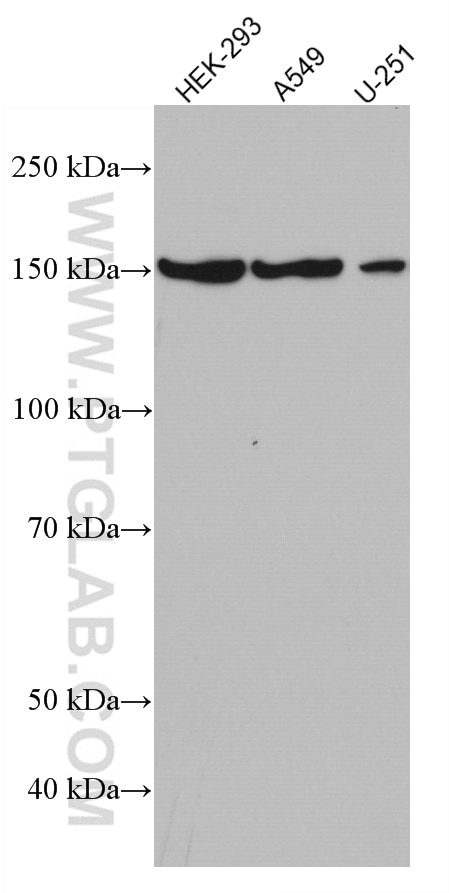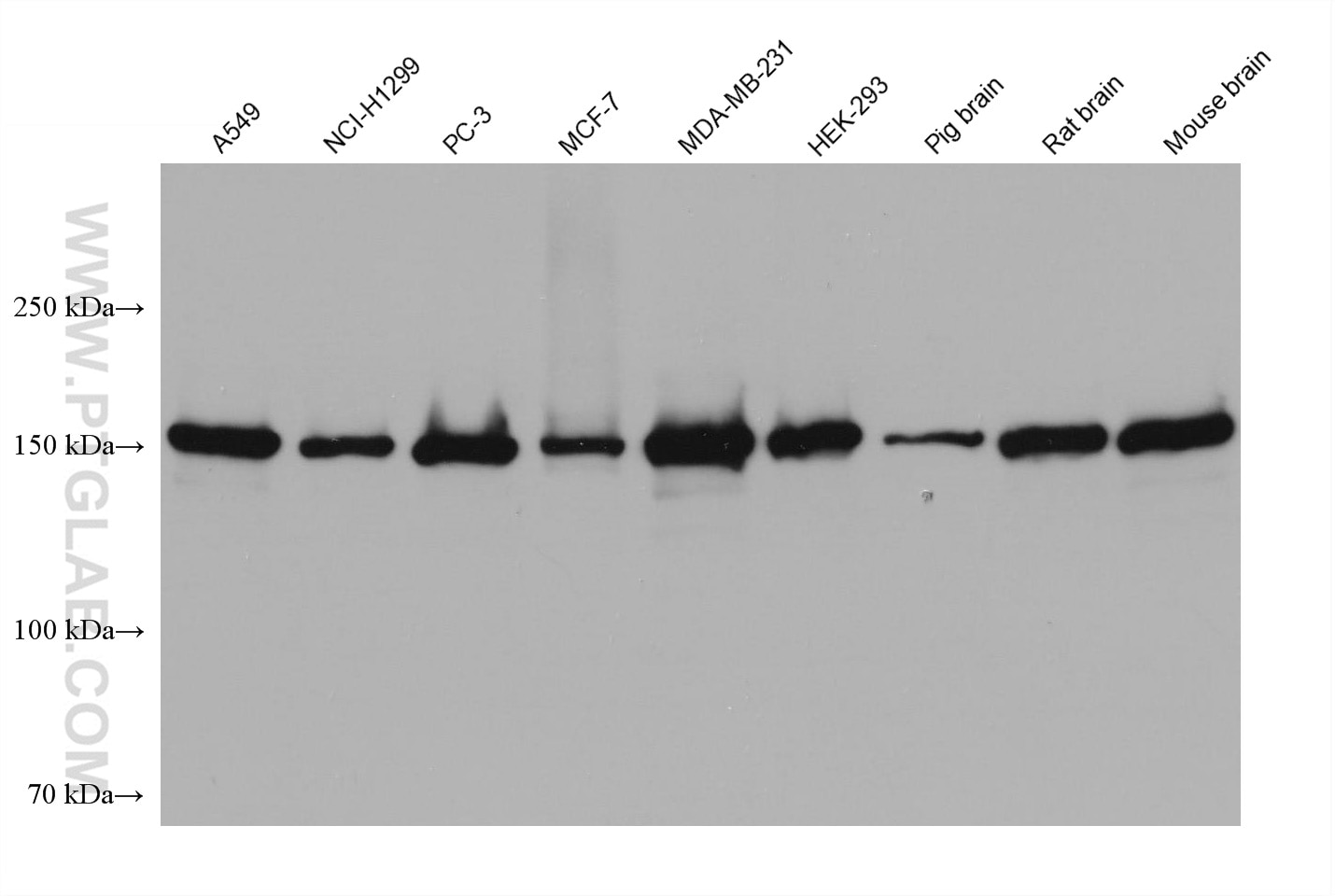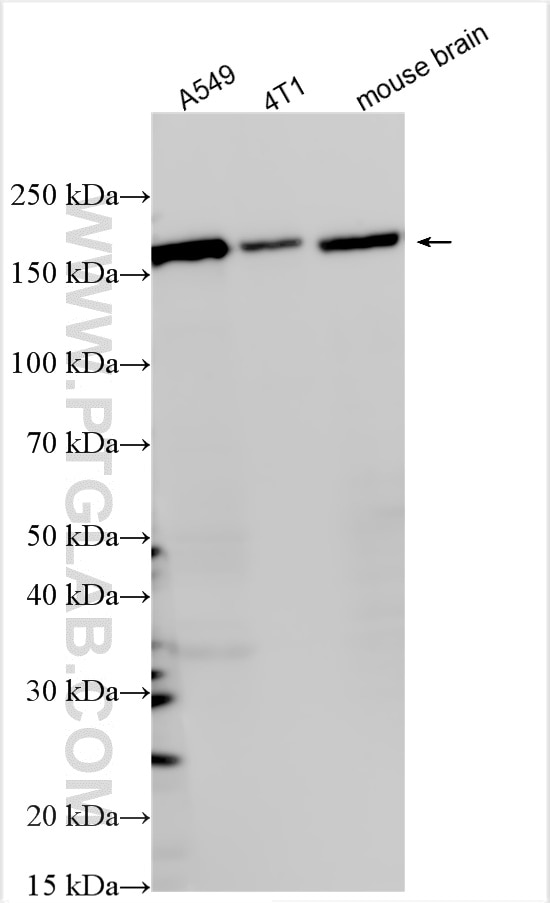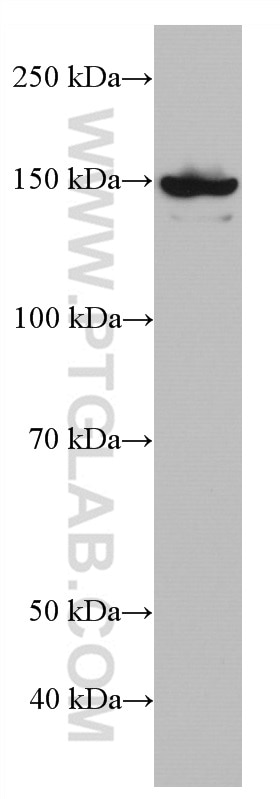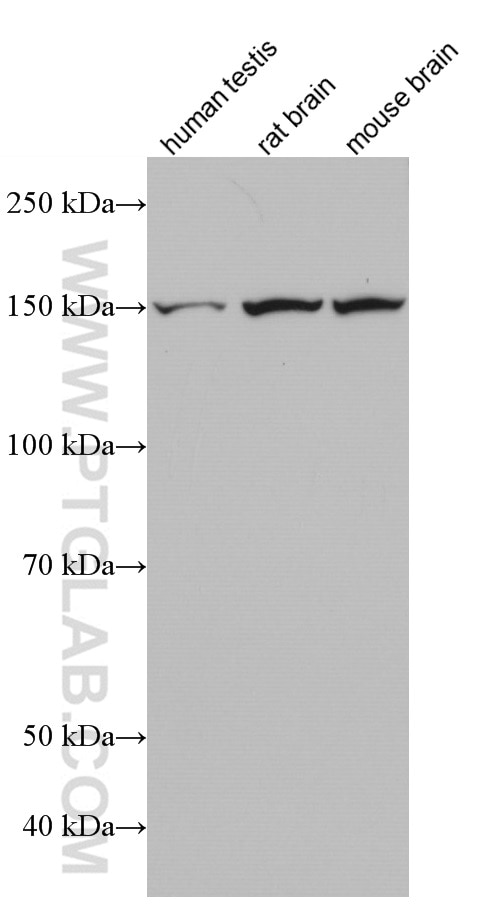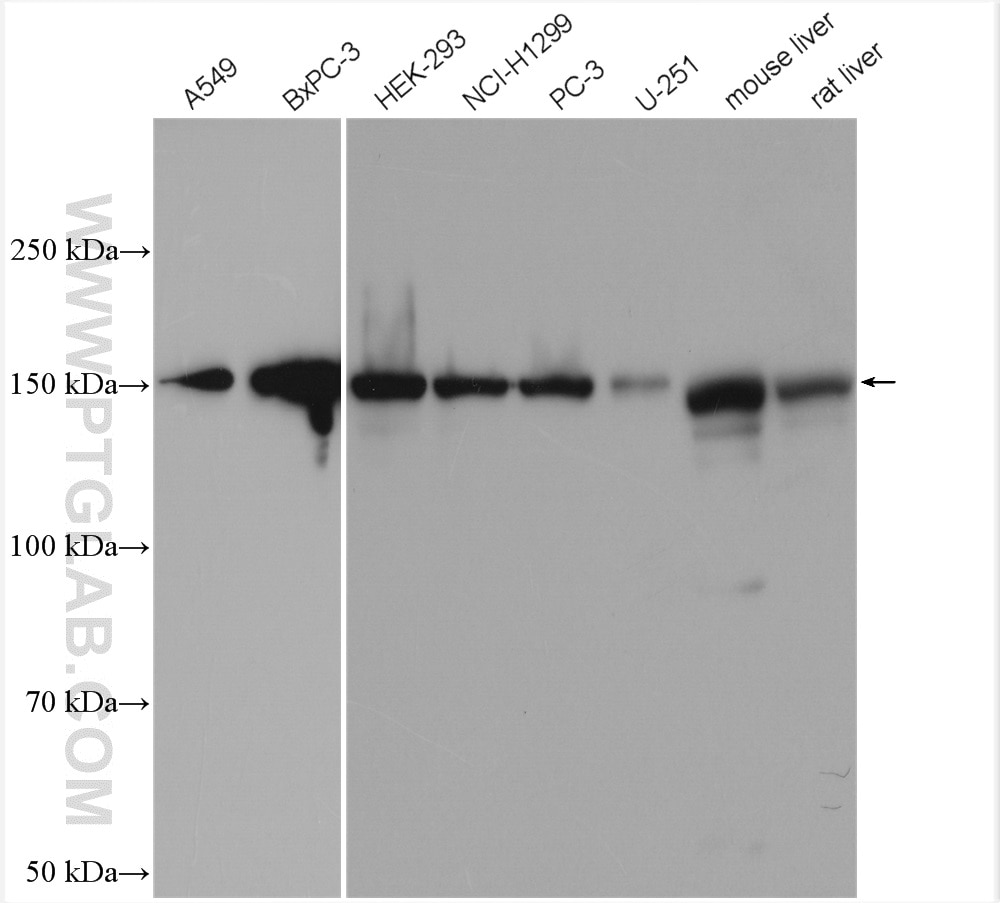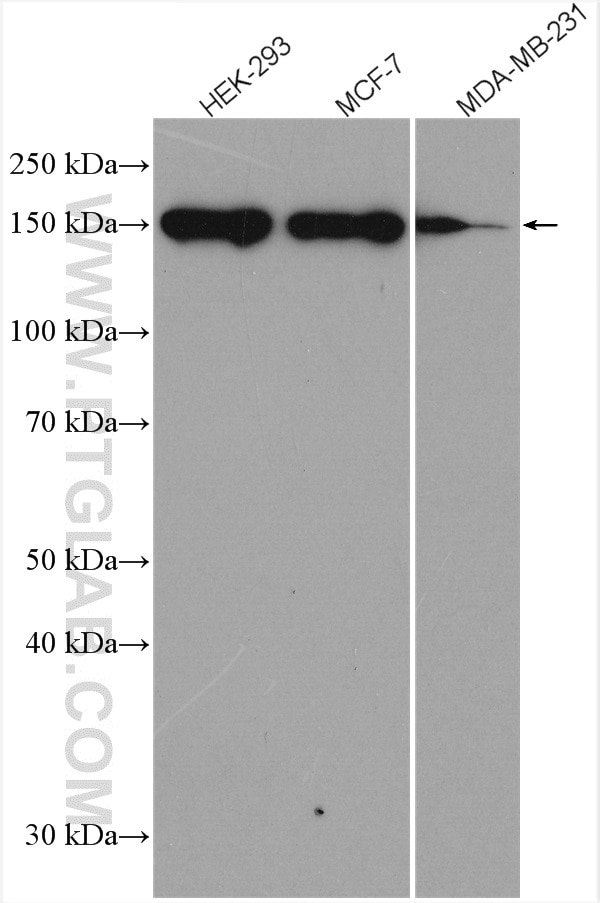- Phare
- Validé par KD/KO
Anticorps Monoclonal anti-GLI1
GLI1 Monoclonal Antibody for WB, ELISA
Hôte / Isotype
Mouse / IgG1
Réactivité testée
Humain, porc, rat, souris
Applications
WB, ELISA
Conjugaison
Non conjugué
CloneNo.
1D2B2
N° de cat : 66905-1-PBS
Synonymes
Galerie de données de validation
Informations sur le produit
66905-1-PBS cible GLI1 dans les applications de WB, ELISA et montre une réactivité avec des échantillons Humain, porc, rat, souris
| Réactivité | Humain, porc, rat, souris |
| Hôte / Isotype | Mouse / IgG1 |
| Clonalité | Monoclonal |
| Type | Anticorps |
| Immunogène | GLI1 Protéine recombinante Ag27832 |
| Nom complet | GLI family zinc finger 1 |
| Masse moléculaire calculée | 1106 aa, 118 kDa |
| Poids moléculaire observé | 150 kDa |
| Numéro d’acquisition GenBank | BC013000 |
| Symbole du gène | GLI1 |
| Identification du gène (NCBI) | 2735 |
| Conjugaison | Non conjugué |
| Forme | Liquide |
| Méthode de purification | Purification par protéine G |
| Tampon de stockage | PBS only |
| Conditions de stockage | Store at -80°C. 20ul contiennent 0,1% de BSA. |
Informations générales
GLI1, also known as Glioma-associated oncogene, is a 1106 amino acid protein, which belongs to the GLI C2H2-type zinc-finger protein family. GLI1 is detected in testis and Also expressed in the brain with highest expression in the cerebellum, optic nerve and olfactory tract. GLI1 is tethered in the cytoplasm by binding to SUFU (PubMed:10806483). GLI1 is activated and translocated to the nucleus promoted by interaction with STK36 (PubMed:10806483). Phosphorylation of GLI1 by ULK3 may promote nuclear localization (PubMed:19878745). GLI1 as a transcriptional activator may regulate the transcription of specific genes during normal development (PubMed:19706761). GLI1 plays a role in craniofacial development and digital development, as well as development of the central nervous system and gastrointestinal tract and Mediates SHH signaling (PubMed:19706761). GLI1 plays a role in cell proliferation and differentiation via its role in SHH signaling.
